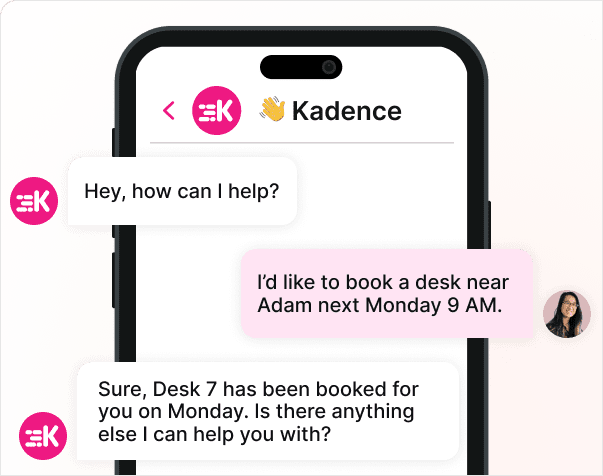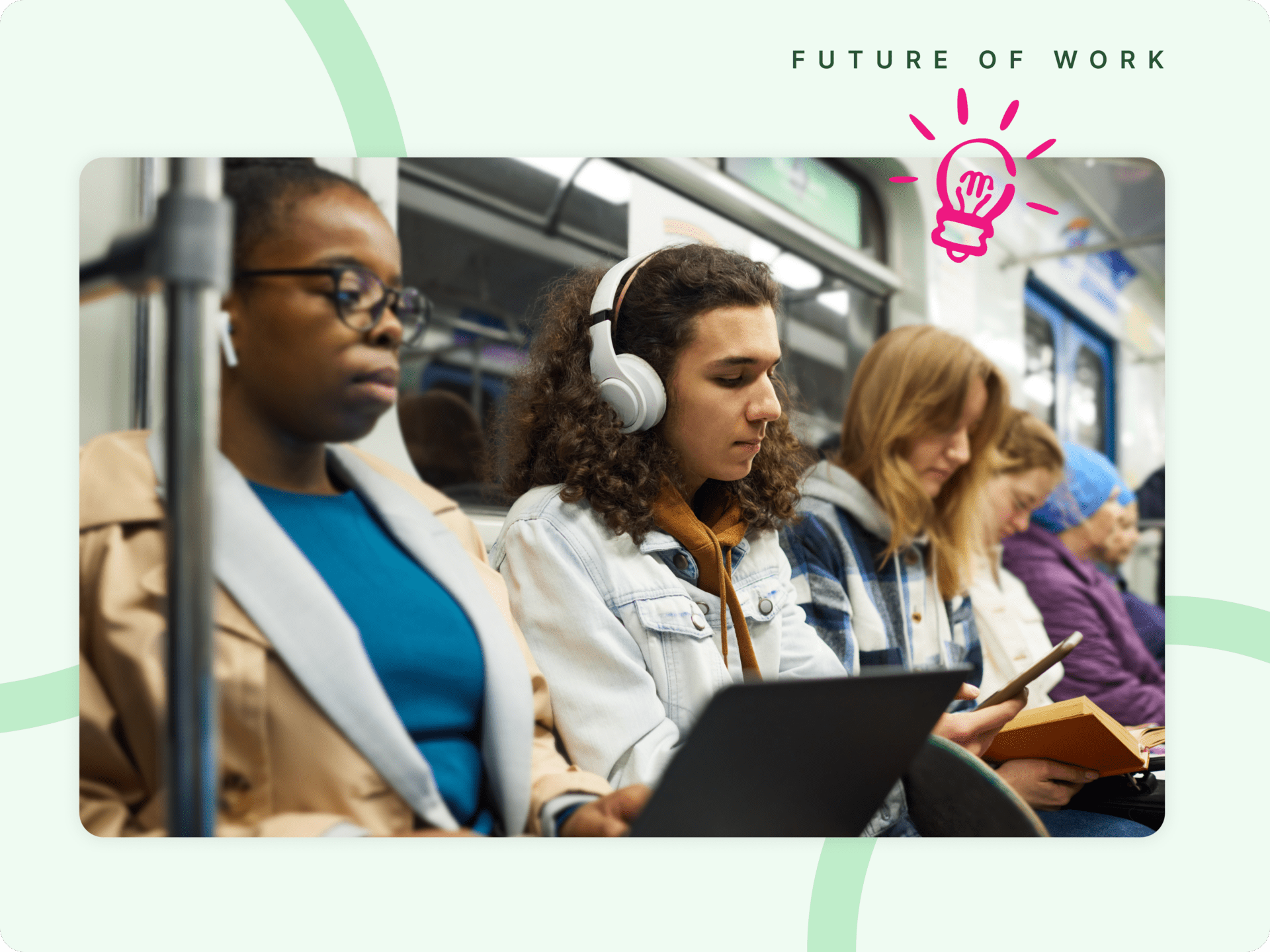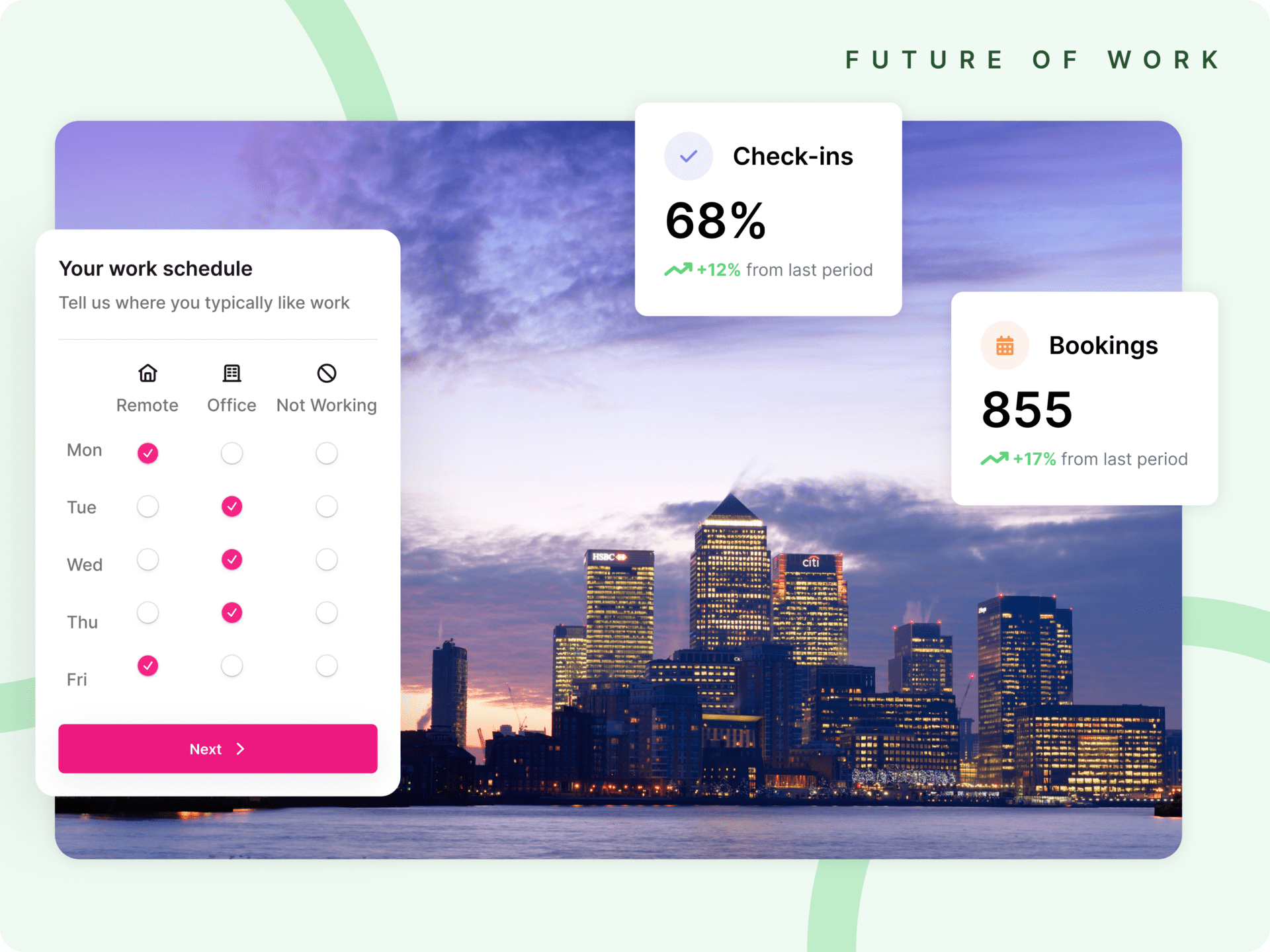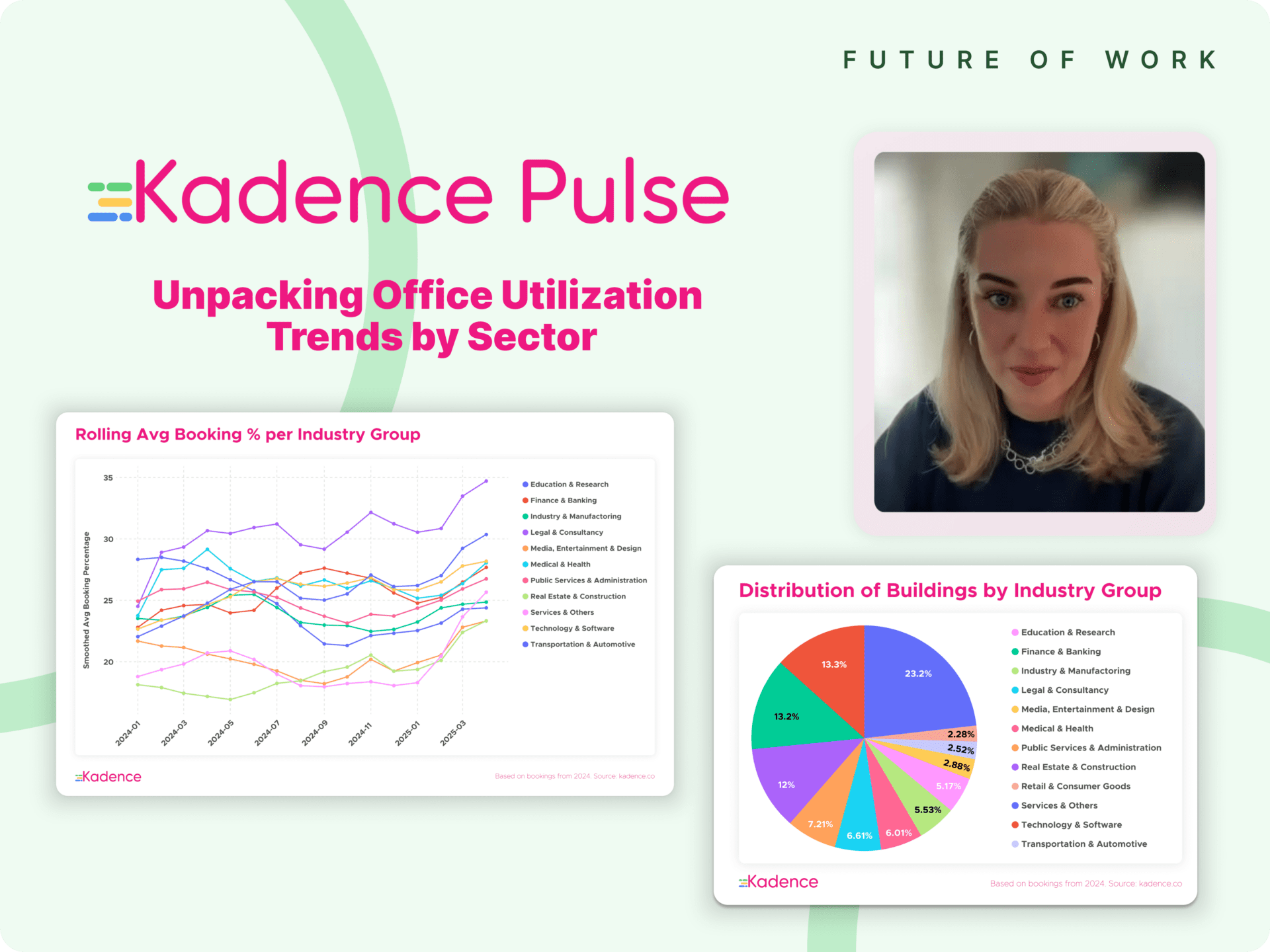In a world rapidly being transformed by artificial intelligence, how we work is evolving at an astonishing rate; especially with the rise of hybrid workplace AI.
The implications are profound, and they touch every aspect of our professional lives. From copywriting to coding, and schedule management to creative brainstorming — AI has become an invaluable work partner overnight.
Many are apprehensive about AI and its role in the job market. 37% of Americans are said to be worried about AI displacing them from their jobs, while projections estimate that automation could eliminate 73 million US jobs by 2030.
As we navigate the next phase in our relationship with AI, Kadence is committed to being at the forefront of change. We strongly believe in focusing on how AI can bring out the best in people, and help us get our best work done.
Below are not just our projections for how workplace AI will shape (and is shaping!) the future — they are our pledge to continue delivering game-changing products that help people flourish at work — alongside AI.
Optimization, in real-time
There’s a reason that experts predict AI will boost global growth by 4-6% per annum.
Workplace optimization and automation are coming in thick and fast — and so are the growth benefits associated with them.
For most companies that work under today’s hybrid model, optimization is an asynchronous, ongoing task. This means that business leaders spend a lot of their time trying to figure out how to get the best results from their resources – and a lot of their time waiting for these results to show.
This is the first major way we’ll see workplace AI have an impact. Once fully AI-assisted, workplaces will begin to optimize synchronously – with the right measures applied as and when they appear as possibilities to managers.
This impact will be seen across every area of a company’s operations: from the way a physical office space is managed and organized to the daily intricacies of scheduling and bringing people together.
A shapeshifting workspace
There’s no getting around it – physical offices have taken a big hit in recent years. As a result, average office utilization rates are down at just 60%, and real estate value is estimated to drop up to $1.3 trillion in value by 2030.
In short, the role and purpose of physical office space are in crisis — and in dire need of transformation.
AI is poised to play a crucial role in that transformation.
With the right implementation of workplace AI, the physical workspace will become a flexible hub, catering to the specific Kadence and preferences of each employee. Trained on the data it’s given, your hybrid work AI will suggest regular updates to office neighborhoods and work areas, and it will allocate rooms and desks according to their optimal usage.
The days of searching for a meeting room or a quiet spot to focus will be long in the past — your workplace AI will have optimized your time in the office and made sure you’re always in the best place to get work done.
It’s time to give the office a facelift!
The end of human schedule management
57% of workers surveyed by Timewatch revealed they don’t feel in control of their working schedules for at least two days a week. That’s a lot of uncertainty for a lot of people.
Luckily for them, us, and you, we’re about to see the end of human schedule management – at least on a professional level.
That’s because AI in the workplace will soon be on hand to organize and refine your work schedule in real time. For example:
- You were supposed to have a team meeting in the office, but two of your colleagues cannot attend physically. Your hybrid work AI clocks that the majority of people are attending remotely, and sends you a smart suggestion ahead of your trip into the office — saving you a commute.
- You always meet remotely with your line manager because you’re based in different cities. But — as it happens — they are in town to meet with the CEO this week and forgot to tell you. Not to worry — your workplace AI has taken note, and suggested a physical meeting room for your catch-up. You get to meet face-to-face for the first time.
This is just the tip of the iceberg. In time, hybrid work AI will purr away in the background, pulling the strings behind you and your colleagues’ work schedules — ensuring everyone’s time is in perfect harmony with their surroundings.
AI-powered ESG
Perhaps the broadest application of workplace AI will be how it caters to a company’s overarching business strategy. Desk booking, room booking, and team coordination may all seem like formalities — but, stacked up, they make up a substantial part of a company’s bottom line.
Workplace AI will not only act as a tool that helps us navigate the complexities of everyday work; it’ll become a partner in achieving wider organizational goals.
Whether the objective is to boost productivity, reduce environmental impact, or enhance employee satisfaction and happiness, workplace AI will act as our strategic ally in ensuring our work always goes towards the right common goals.
For companies that openly disclose and seek to reduce their environmental impact (estimated to be over 70% by KPMG) – the implications will be dramatic. Hybrid work AI will be on hand to optimize corporate carbon footprint — whether that be through switching off underused office neighborhoods, suggesting optimal schedules for office attendance based on its energy usage data, or even arranging smart commuting or car-sharing initiatives.
For those organizations that are equally concerned with fair hiring practices and transparent governance, workplace AI will be able to point to blind spots and help companies introduce timely policies to keep to their targets.
The future of ESG is around the corner — and AI assists it.
Shared intuition
The ultimate vision we have for future hybrid organizations is the development of shared intuition between workers and their hybrid work AI.
This means an AI assistant that deeply understands your preferences, anticipates your needs, and guides you toward the best choices on a daily — even hourly — basis.
We spend so much time sweating the small stuff at work: schedule clashes, miscommunication about office attendance, and the pressure of having to manage the minutiae of your work life. So much so, in fact, that we forget about the big stuff: feeling part of a flourishing company, collaborating with our teammates, producing amazing results together.
Workplace AI will deal with the small stuff precisely in a way that also maximizes the big stuff. Understanding what makes you and your team tick, it’ll ensure that each and every tiny decision contributes to your own personal bottom line: feeling happy and fulfilled at work.
Kadence and the future of work
At Kadence, we won’t just be bystanders as the world of work undergoes some of its most dramatic changes.
We vow to be right there at the forefront — guiding and leading the introduction of workplace AI into our workflows, and making sure it always acts in the interest of people, profits, and the planet.
That’s why we’ve been hard at work building something that will be the first step towards our vision of the future. A hybrid work AI tool that will help us all transition into the next phase of AI-assisted work.
Get in touch with us today and let us show you how your AI-enhanced workplace could look.




